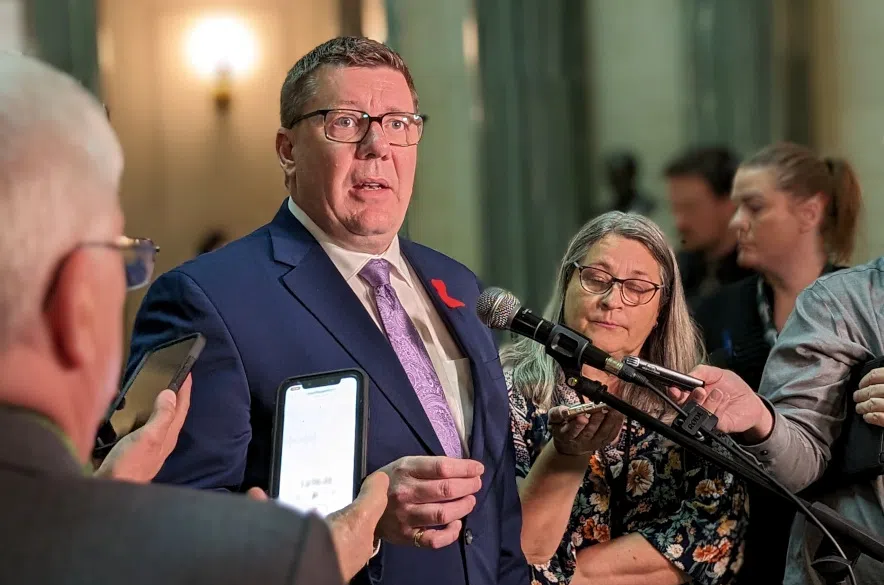Equalization and whether it’s fair for Saskatchewan has long been a thorny issue for some in Saskatchewan – and on Thursday, Premier Scott Moe appeared to take a step toward attacking the issue.
He posted to social media that he would have his Attorney General, Bronwyn Eyre, look into joining as a supporting intervenor in the case against the federal equalization program the Newfoundland and Labrador government revealed on Thursday.
Moe said he wanted Eyre to reach out to her counterpart in Newfoundland to discuss Saskatchewan intervening in support of that province’s case.
The Newfoundland government said the program isn’t fair right now – it received equalization this year for the first time since 2008 but the province contends the formula is flawed and it could have received equalization in each of the last five years.
It’s usually when provinces stop seeing equalization payments that they bring up the formula – in 2018 Ontario didn’t get a payment from Ottawa and that province’s finance minister at the time called for a review of the program.
Sask. NDP Leader Carla Beck said Thursday, that Moe has no credibility on equalization, that it was the Sask. Party government that scrapped the former NDP government’s court challenge.
“As premier, I will always stand up for Saskatchewan people no matter who sits in the Prime Minister’s office,” said Beck in a statement.
“Saskatchewan New Democrats will always fight for a better deal on equalization, and would pursue a court challenge to do so.”
Beck said Moe’s announcement on social media was pure hypocrisy.
Years of equalization challenges
Equalization payments are determined by a province’s fiscal capacity, which is calculated by the equalization formula. It looks at the total amount of revenue at province could bring in if its taxes were at the national average rate, according to the federal government website. Provinces that are lower than average get a payment.
The formula doesn’t taking into account the differing costs of providing services in different parts of the country, or price fluctuations in resource markets.
In 2008, the relatively new Sask. Party government dropped a court challenge of the federal equalization program, then-Premier Brad Wall saying he was asked to do so by then-Prime Minister Stephen Harper. The challenge had argued Saskatchewan wasn’t being treated fairly on how the formula dealt with natural resource revenue.
At the time, Justice Minister Don Morgan – who is leaving politics this fall – said the court challenge had been hampering negotiations between the province and the federal government.
This isn’t the first time Premier Scott Moe has brought up the equalization formula – in 2018 he called for changes to the program, saying half of equalization money should be distributed using the formula, with the other half being paid out on a per-capita basis.
In a letter Moe sent to the prime minister in 2019 talking about Western Canada, Moe suggested that if Trudeau was serious about listening to this part of the country then he would commit to a new equalization formula











